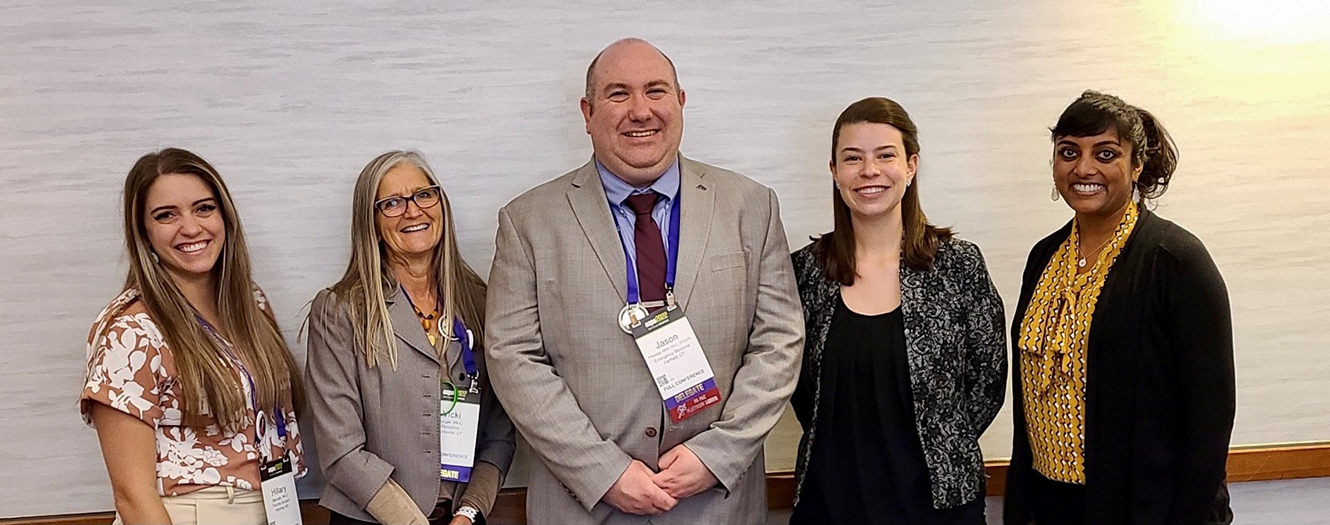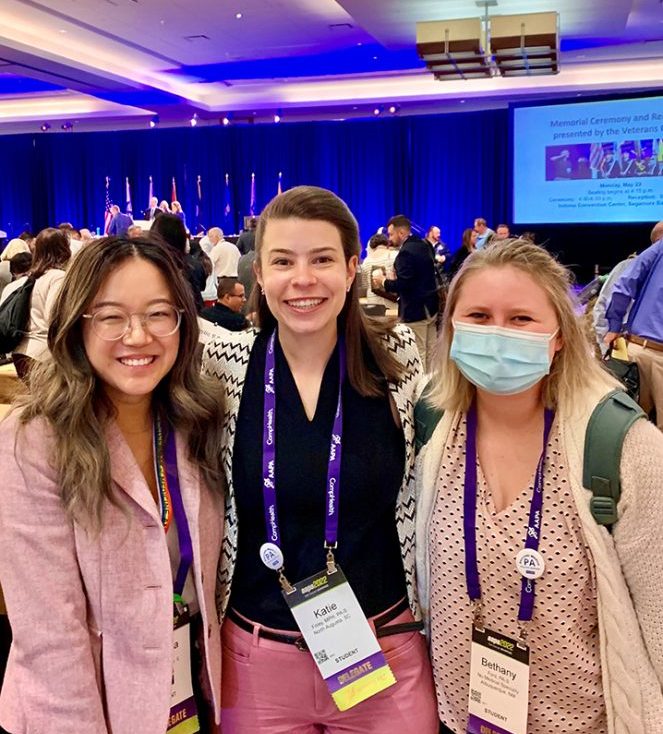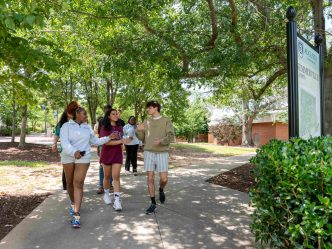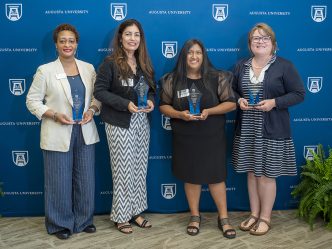Katie Foley represented Augusta University this summer at the American Academy of Physician Associates Conference and House of Delegates meeting in Indianapolis.
Foley applied for the AAPA Student Delegation and was elected to the position by the AAPA Student Academy board of directors. She started her first term in fall 2021 and has been reelected for another term this school year.
The AAPA House of Delegates, which meets for three days before the conference starts, is made up of 280 PAs — and Foley was one of 20 student delegates from around the country to attend the event. Each student delegate represents about 880 student members of AAPA around the nation.
“I found this opportunity because my background is in health policy and I had been on the lookout for opportunities to integrate my passion for policy into my experience as a student,” said Foley, who is a Master of Physician Assistant student in the College of Allied Health Sciences and is currently in her clinical year.
In the months leading up to the conference, Foley worked virtually with other student delegates to prepare for the conference, which included studying the rules for the policymaking body, writing and editing policies submitted by the student delegation, and reading and summarizing policies submitted by other delegations in preparation for arguments and voting.
She also co-wrote a policy titled “Health Equity for Students Pursuing PA Education” with a PA student from Yale University. The pair successfully defended their resolution with an amendment to include support for mental health services.
“The final text of the resolution reads ‘AAPA believes that PA students should have access to cost-free or low-cost health care and mental health services or coverage.’ My support for this policy stems from my passion for equity of access to health insurance and health care for all,” Foley added.
She feels she grew professionally from serving on the delegation.
“This experience was foundational for my future career and provided wonderful networking opportunities, new perspectives from PAs and PA students around the nation, and expansion of my education and interests,” Foley said. “It was a whirlwind three days that stretched my comfort zone but has helped shape me into a better student and given me a better understanding of the kind of PA and advocate that I want to be in the future.
“I want to stay involved in policymaking and professional advocacy in my local community, state and nation. I was proud to represent PA students from around the nation, my PA class, and my university at the national level, and I look forward to staying involved this coming academic year.”
Before the conference, Foley created a survey of the most important and relevant policies to PA students and used this survey to poll her PA class and the second-year cohorts. She said she used those results to inform her votes to ensure she was making “educated, informed choices.”

She also had a volunteer role on a reference committee, which is a special group that sits at the front of the room during policy deliberations and meets after the deliberations to write a summary report on the resolutions discussed during that session.
“For me, personally, some of the most important votes I participated in were for resolutions on student delegates’ eligibility to vote in the AAPA general elections, reduction of barriers to application to PA school for students with disabilities, and improved training and education to increase competency in best practices in telemedicine for PAs and PA students,” she said. “I am proud that the student delegation successfully defended several policies that we wrote as a student body and secured some big wins for students this year.”
 Augusta University
Augusta University




